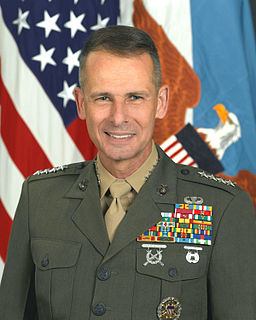A Quote by Erik Prince
Our failed population-centric approach to Afghanistan has only led to missed opportunities, which is why Afghanistan depends on donors for 90% of government revenues. A smarter, trade-centric approach will boost Afghanistan's long-run viability by weaning it off donor welfare dependency.
Related Quotes
If Afghan soldiers continue to kill American soldiers as is happening these days, it can hardly be assumed that they will stay in Afghanistan in the long term. And what role are they to play? There will not be enough soldiers to ensure the security of the country. But will the US still be permitted to kill terrorists in Afghanistan and Pakistan with un-manned drones? That could worsen the situation in the neighboring states and they could view Afghanistan as a threat.
At some point, deliberation begins to look more like indecisiveness which then becomes a way of emboldening our enemies and allies and causing our allies to question our resolve. So we shouldn't let one component of this determine our national security here which depends on providing an Afghanistan which denies a safe haven to terrorists as well as stabilizing Pakistan. Those are our two national security interests at stake in Afghanistan.
Johnny Apple, a New York Times correspondent, wrote a front-page story saying Afghanistan could be a quagmire and he was mocked and derided. What is certainly true is that all sorts of resources that would have been used in Afghanistan were diverted to Iraq. Would those resources have helped? Almost undoubtedly. Whether or not Afghanistan would be a peaceful nation-state had we not gone into Iraq I doubt. Afghanistan is going to be Afghanistan, no matter how hard we try to make it something else.
Afghanistan would have been difficult enough without Iraq. Iraq made it impossible. The argument that had we just focused on Afghanistan we'd now be okay is persuasive, but it omits the fact that we weren't supposed to get involved in nation-building in Afghanistan.In my new book, I open with a quote from Donald Rumsfeld. In October 2001, he said of Afghanistan: "It's not a quagmire." Ten years later there are 150,000 Western troops there.
The ongoing war in Afghanistan is being imposed on us, and Afghans are being sacrificed in it for someone else's interests. We are not blocking the interests of the United States or other major powers. But we are demanding that if you consider Afghanistan the place from which to advance your interests, then you should also pay attention to Afghanistan's interests.































